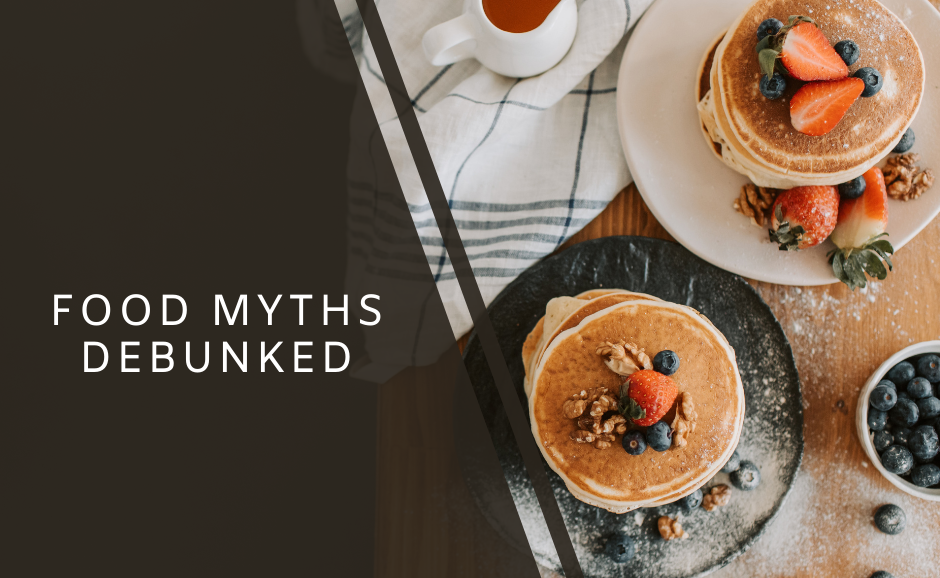Food myths have been around for generations, passed down as common wisdom without much scientific backing. But with advances in nutrition research, many of these so-called truths have been debunked. Let’s separate fact from fiction and bust some of the most common food myths.
Myth 1: Eggs Are Bad for Your Heart
For years, eggs were demonized due to their cholesterol content. However, recent studies have shown that dietary cholesterol has minimal impact on blood cholesterol levels for most people. In fact, eggs are packed with high-quality protein, vitamins, and healthy fats that support overall health. So go ahead and enjoy your omelet guilt-free!
Myth 2: Microwaving Destroys Nutrients in Food
Many believe that microwaving food zaps away all the nutrients, but the truth is quite the opposite. Microwaving is one of the best cooking methods for preserving nutrients because it uses shorter cooking times and minimal water. Steaming or microwaving your veggies actually helps retain more vitamins than boiling them.
Myth 3: Carbs Make You Gain Weight
Carbohydrates have been unfairly blamed for weight gain. While processed and refined carbs (like white bread and sugary cereals) can lead to weight gain, whole carbs (like fruits, vegetables, and whole grains) are essential for energy and digestion. The key is balance and choosing complex carbs over simple ones.
Myth 4: Eating Late at Night Causes Weight Gain
The idea that eating after 8 PM leads to weight gain is a common misconception. Weight gain is primarily determined by total calorie intake and expenditure, not the time of day you eat. However, late-night snacking on unhealthy foods can lead to excess calorie consumption, which may contribute to weight gain.
Myth 5: Detox Diets Cleanse Your Body
Juice cleanses and detox diets claim to flush toxins from your body, but your liver and kidneys already do that job efficiently. There’s no scientific evidence that special detox diets are necessary. Instead, a balanced diet rich in fiber, water, and whole foods naturally supports detoxification.
Myth 6: Brown Sugar Is Healthier Than White Sugar
While brown sugar contains trace amounts of minerals like calcium and iron, the difference is negligible. Nutritionally, brown and white sugar have nearly identical effects on blood sugar levels, so choosing one over the other won’t make a significant difference in your diet.
Myth 7: Fresh Produce Is Always Better Than Frozen
Many assume that fresh fruits and vegetables are superior to frozen ones, but studies have found that frozen produce can be just as nutritious—sometimes even more so. This is because they’re frozen at peak ripeness, preserving their nutrient content.
Myth 8: Spicy Foods Cause Ulcers
While spicy foods can aggravate existing stomach conditions, they don’t actually cause ulcers. The real culprits are often bacteria (H. pylori) or long-term use of nonsteroidal anti-inflammatory drugs (NSAIDs) like ibuprofen. In fact, some spicy foods, like chili peppers, contain compounds that may promote gut health.
Misinformation about food and nutrition spreads easily, but science helps us debunk these myths. Instead of following outdated advice, focus on eating a balanced diet filled with whole, nutrient-rich foods. Have you heard any other food myths that need busting? Share them in the comments below!






2 Comments